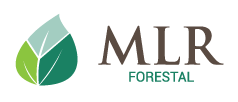News
Historic agreement between Mayangna communities of the Matumbak territory and MLR Forestal
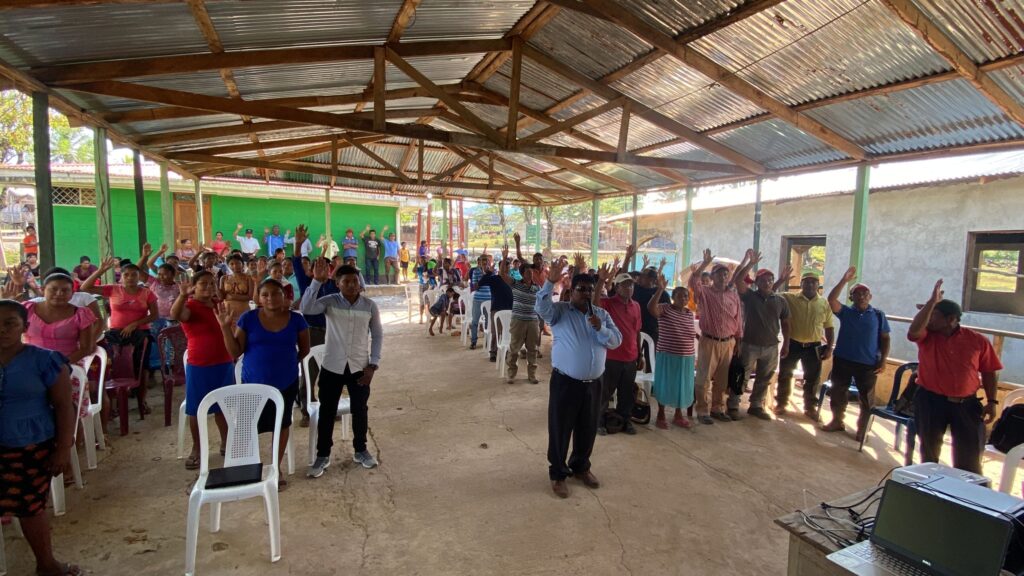
After an approval process through the protocol of Free, Prior and Informed Consent (FPIC) the nine Mayangna communities of the Sauni Arungka Matumbak territory in Bonanza, their Indigenous Territorial Government (GTI) and MLR Forestal completed on May 5th, the agreement and the transfer of the Miranda farm and its improvements, to the Matumbak territory.
The Miranda farm is located in Bonanza and is part of the agroforestry project of MLR Forestal, a company that has been legally owned by title duly registered in the Property Registry.
Before the company bought the farm and established agroforestry plantations, the Miranda farm was destined for decades to the planting of basic grains, tubers and extensive cattle ranching that degraded the land.
The farm measures 113.85 ha. of which there are currently 37.59 ha. of teak only; 51.62 ha. of cocoa plantations in association (asocio) with teak, with cocoa production projection is approximately 1.4 tons of dry cocoa per hectare when in mature production. In addition, as part of MLR Forestal commitment to the conservation and promotion of biodiversity, the property includes 24.65 ha. intended for natural regeneration.
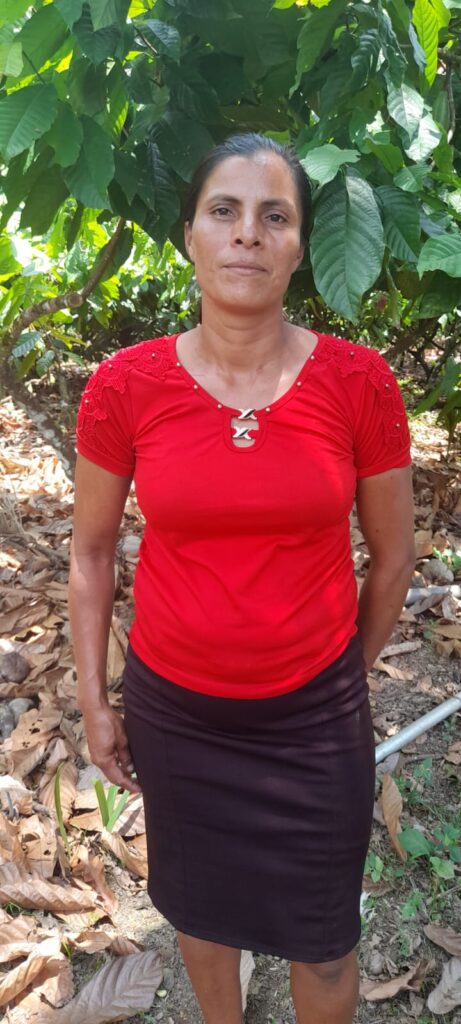
“When I heard that they (MLR Forestal) were going to give this farm I felt grateful, I was confident. I thought said to myself, what we have to do now is take good care of it, not let any tricky people get involved in its management and that we should work and organize ourselves better every day.”
Maribel Michel, leader of the Wihilwas community
A long-standing relationship that has paid off
After the demarcation of indigenous territories, mandated by the Law of Communal Property Regime of Indigenous Lands, known as Law 445, the Miranda farm was within the Matumbak territory with whom the company has long-standing relations, which allowed us to lay the foundations to initiate a process of transfer of ownership and its improvements to be managed and managed by Matumbak.
The work and relationship between MLR Forestal and Matumbak in recent years allowed us to face a series of challenges, such as the Covid 19 pandemic and hurricanes Eta and Iota that impacted the North Caribbean in November 2020. This allowed us to get to know each other, understand each other and create relationships of mutual support; which gave rise to start thinking about the benefit that the transfer of the Miranda farm would bring to the community.
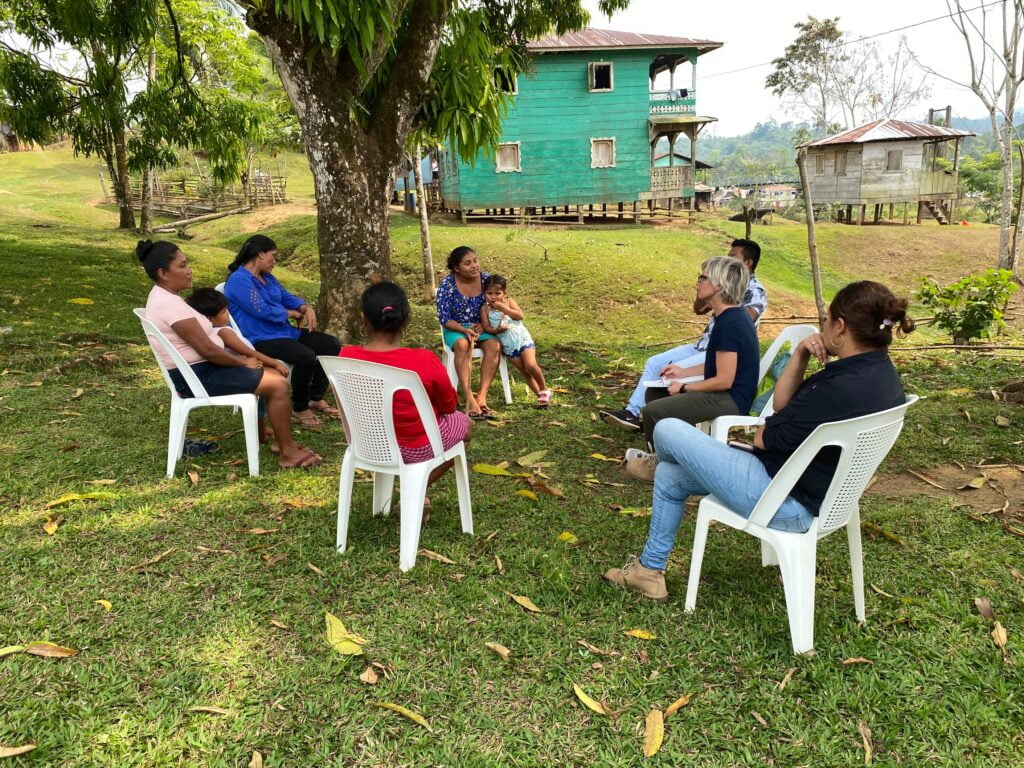
Today, seeing it materialized and concretized, both MLR and the GTI and the communities see the road traveled and understand that without that mutual trust built over the years, it would have been impossible to be where we are today.
The transfer process included a series of consultations and evaluations for both entities to determine the best scenario for this process, which among other issues, includes the accompaniment of MLR Forestal in the operation of the farm.
On the other hand, in recent years, MLR Forestal has concentrated its operation in Siuna where it plans to continue growing. The Miranda farm is located in Bonanza, more than 100 kilometers from the MLR operations center, representing a challenge in terms of logistics and production since Bonanza does not offer possibilities to continue growing because there are no degraded lands of old date that is where we establish our plantations.
“This is an opportunity for the nine communities of Matumbak to learn, university students can also learn, it is a nucleus for experimental scientific study. The social part will also benefit because there will be a development plan. With the income, projects will be carried out in the communities: such as drinking water and expansion of the cocoa plantation in the territory.” Roger Damaso, communal authority of Pansuhwas
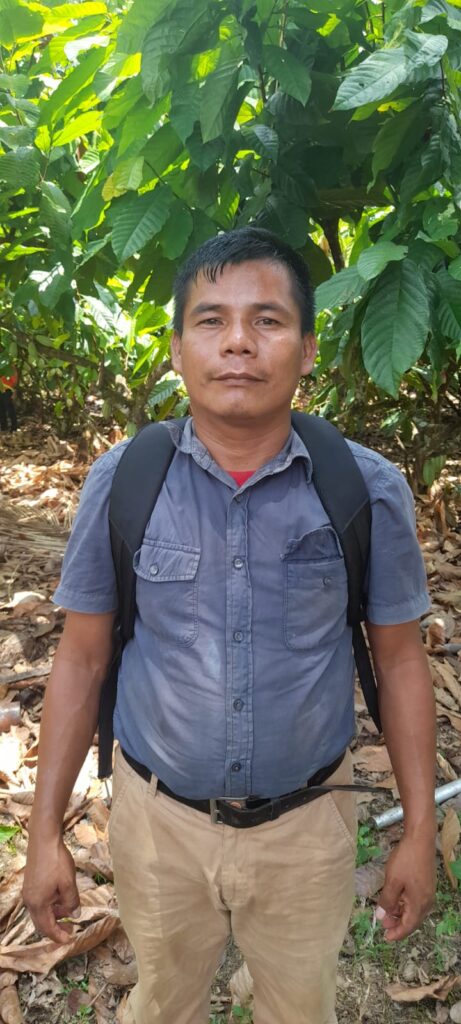
The transfer has brought joy to the territory, says the president of the GTI
Since 2017, MLR Forestal was recognized by the authorities of the Matumbak territory as a third party with rights under Law 445.
For Mario Peralta Bands, president of the Indigenous Territorial Government (GTI), the transfer is a historic event that has filled the territory with joy.
“We have had communication with the company in good and bad times, such as in 2020, when two hurricanes hit us hard, MLR was there, side by side with the communities of this territory,” said Peralta.
“The company bought this farm in good faith. When the demarcation and titling of communal lands was made according to Law 445, the area was expanded and the farm was included in the Sauni Arungka territory. We worked a long time with good understanding (with MLR), but there came a time when the company decided to donate that area. At first we thought about cocoa, forest trees and we were worried about how we were going to pay for these investments, but in the assemblies the company explained that they were ceding the total right to the community with everything that is inside the farm,” said the president of the GTI.
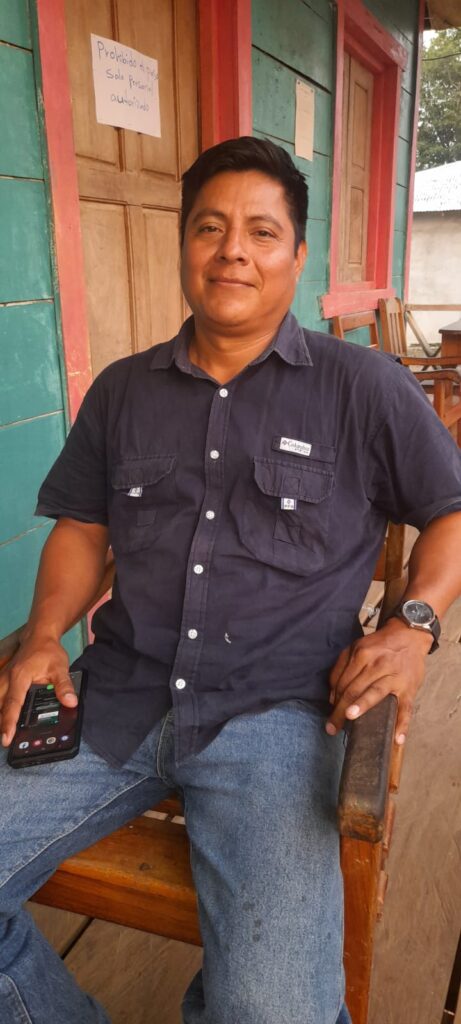
“This is something new, it is the first company to do it and this will serve many companies that are in Nicaragua, that have properties within the Miskito or the Mayagna territories. The example that MLR is setting is very valid and deserves to have an impact. The company is not only handing us over the property, they are going to advise us.”
Denis Benítez Patrón, first vice-president of GTI Matumbak
An unprecedented benefit
“The Sauni Arungka territory does not have a place where it has planted cocoa in that amount, but now we feel that Sauni Arungka has a cocoa farm with a large number of hectares and timber trees such as teak and we did not think that was possible,” said the president of the GTI.
As part of the agreements, the process includes an accompanying plan to ensure the sustainability of the Miranda farm. The transfer of this farm provides an opportunity for the inhabitants of the Mayangna territory to access training and employment, since the cocoa sector is known in the Matumbak territory where there are five cocoa cooperatives and some professionals with experience in this economic sector, which guarantees the correct management and use of cocoa plantations.
As far as is known, there is no similar process in Nicaragua or in the Latin American region. “For the Mayangna communities of the Matumbak territory, the Miranda farm represents a great asset and an unprecedented benefit,” said Luis López, Sustainable Development Manager of MLR Forestal.
“Before, the Miranda farm was pasture, it was not suitable for cultivation. Now we look at it with a healthy, fresh environment and that’s what we are receiving. The company has established forest species which is a good, environmentally friendly alternative. There is a forest, it attracts animals and that is a great advantage for the future of our population.”
Francisco Miguel Castro, president of the Mukuswas and Wasah Multisectoral Cooperative (COOMUKUSWAS)
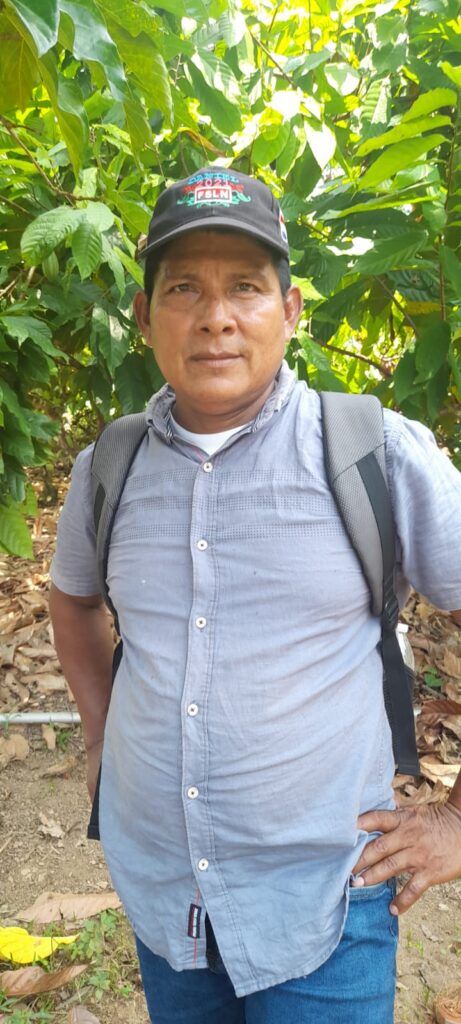
The transfer process using the FPIC
The Mayangna Sauni Arungka Matumbak territory and MLR Forestal carried out the transfer of ownership and its improvements through a jointly agreed protocol for Free, Prior and Informed Consent (FPIC).
“This transfer process executed by MLR Forestal, the communities and their authorities, the Matumbak GTI and the leaders of the territories, has been very well valued and appreciated by the Mayangna communities,” said Peralta.
To carry out the transfer process to the territory, the protocol of Prior, Free, Prior and Informed Consent (FPIC) was followed. Initially, all the previous and preparatory activities were carried out to present the transfer proposal to the indigenous communities of the Matumbak territory.
Then, on November 18, 2022, a territorial assembly was held with the participation of all leaders, communal authorities, GTI, representatives of the Mayangna nation and municipal councilors. The objective was to present the protocol to transfer the possession of the lands and alienate the improvements of the productive unit called Miranda farm in favor of the communities of the Mayangna Sauni Arungka Matumbak indigenous territory.
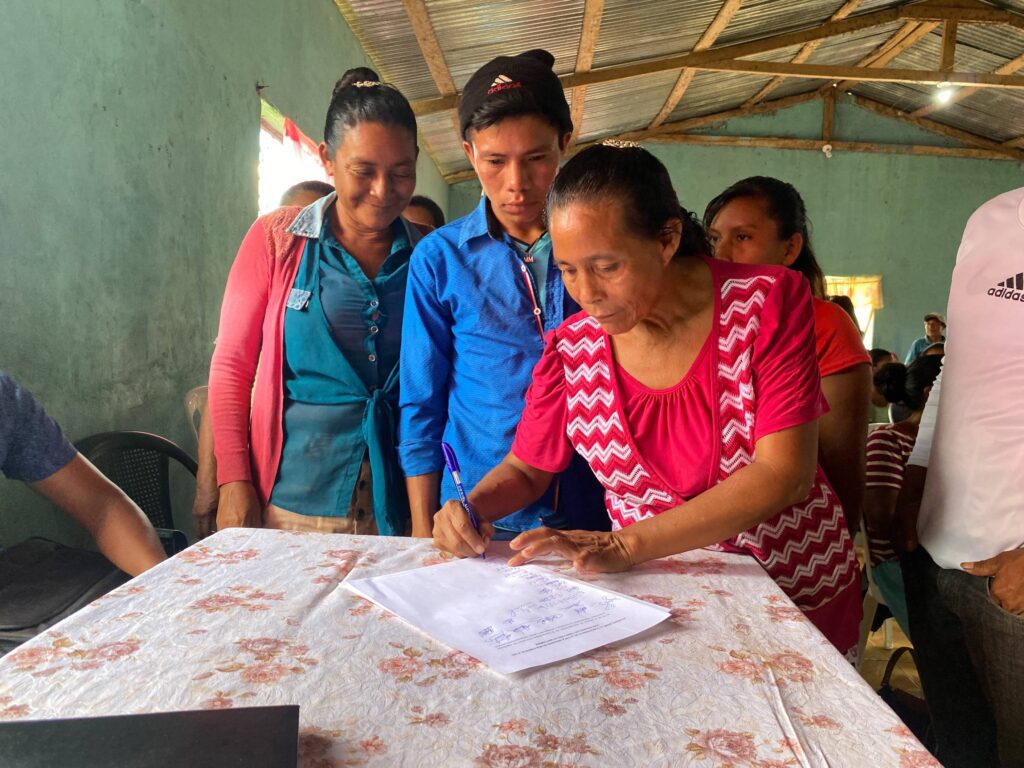
The territorial assembly in full, through its governance mechanism, approved this protocol unanimously, giving way to the process and the elaboration of a schedule that complied with the FPIC through the participation of all communities, this process was documented with photographies and videos.
Once the territorial assembly approved the mechanism, the entire population over the age of 16 was invited and three community assemblies were held for approval. The communal assemblies are the highest authority.
The assemblies were held at three venues: Mukuswas on 11 January 2023, Ispayul-ilna on 24 January 2023 and Mahalwas on 25 January 2023. In each, three communities came together: first Mukuswas, Pansuhwas and Was Sha; then Ispayul-ilna, Wiunak Was and Waki Was, and finally Mahalwas, Ibanwas and Yapuwas. The communal assemblies unanimously approved the transfer protocol of the Miranda farm and agreed to continue with the process.
After this, working sessions were held with the transfer commission, to incorporate into the Proposal for Transfer of Possession the contributions approved in territorial assembly and communal assemblies; Technical details and a legal transfer document were also prepared.
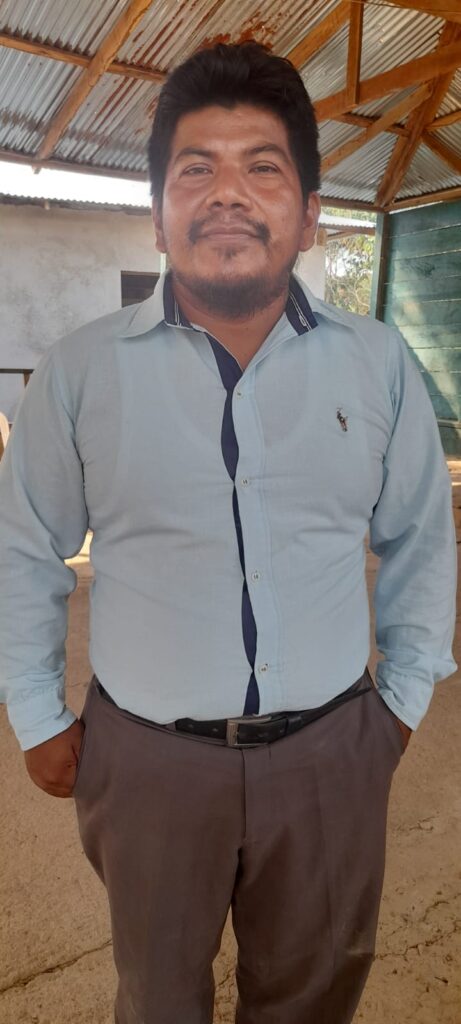
“With this transfer we have a good experience at the Latin American level. This is proof that private companies are humane and can work with indigenous peoples, of course it is a great example, it is very positive, it is a model for other companies”.
Noé Coleman, Mayangna leader and PARLACEN deputy
Last stage of approval and transfer on May 5th
In the last stage, three communal assemblies were held again to approve the transfer instruments. For each group a central location was established which were: Ispayul-ilna on April 12, 2023, Ibanwas on April 13, 2023 and Pansuhwas on April 15, 2023.
With the approval of the community assemblies, the act of signing the transfer and delivery of the farm was carried out, which took place on May 5, 2023 where delegates from the nine communities of the territory were present. In this way, the protocol of Free, Prior and Informed Consent (FPIC) for the transfer of the Miranda farm was fully respected.
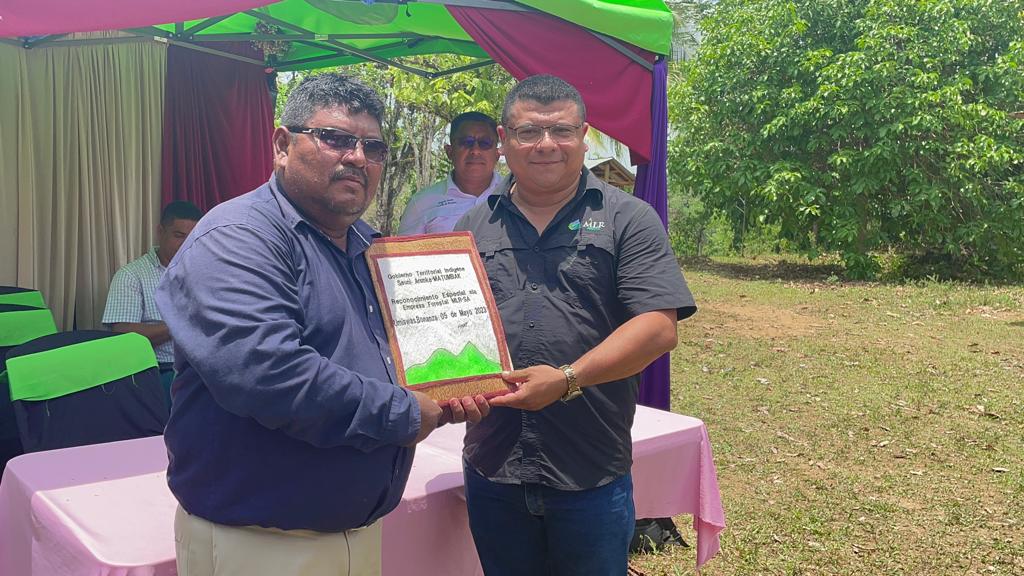
History of the Miranda farm
In the 1980s the State of Nicaragua declared the area where the Miranda farm is located as state land, it was titled and delivered to third parties within the agrarian reform process of the time.
“Based on Law 445 on the Communal Property Regime of Indigenous Lands, approved by the National Assembly in 2003, the Matumbak territory requested the State to include historically claimed areas in the demarcation of this territory. As a result, territorial boundaries were defined and the Miranda farm remained within indigenous territory. This process of demarcation and titling took more than 15 years,” López said.
Since 2017, MLR Forestal was recognized by the Matumbak territory as a third party with rights according to Law 445. In national legislation and in the statutes governing indigenous governments, there is no procedure for the transfer of property and alienation of improvements in favour of communities by third parties with recognized rights.
There is also no international guide on how this transfer should be executed, so MLR Forestal, the GTI and the communities developed an orderly, transparent and sustainable process, unique in its kind. For the transfer, MLR Forestal was advised by the Rural Development Institute (LANDESA), which guaranteed a FPIC process adjusted to the international standards applicable to this type of actions.
And although the International Finance Corporation (IFC) Performance Standards were not a formal part of this process, they did serve as a guide; in particular Performance Standard 7 which calls for minimizing negative impacts on indigenous peoples and “fostering respect for the human rights, dignity and culture of indigenous populations, and promoting the benefits of development in a culturally appropriate manner.”
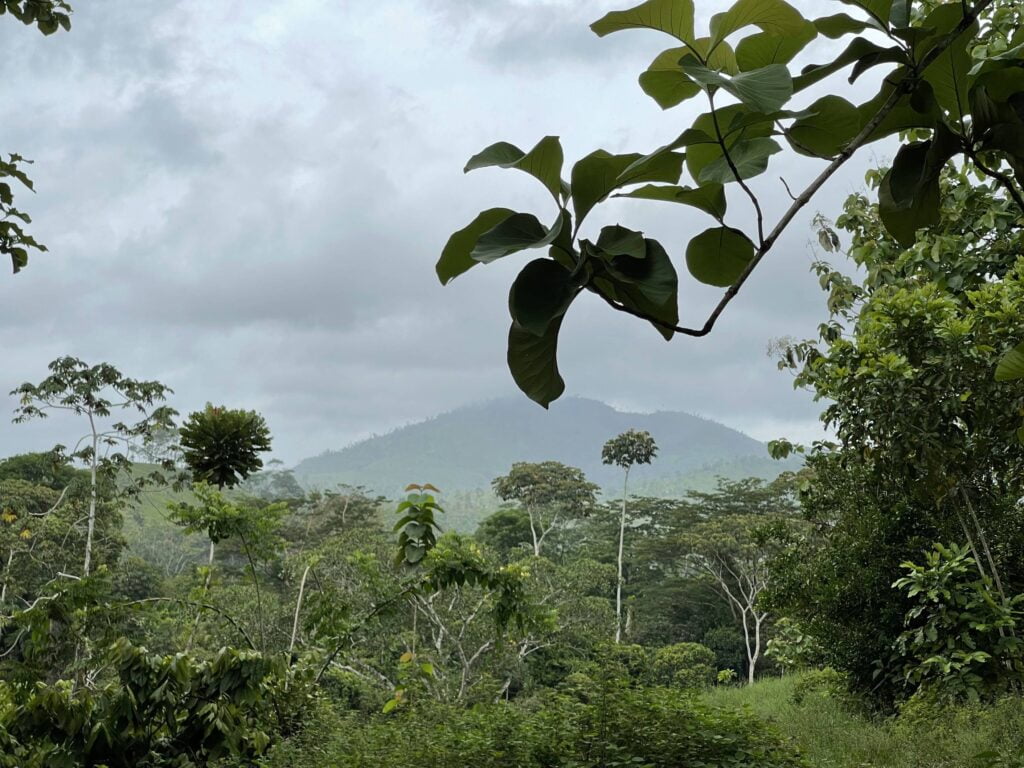
The company also learned valuable lessons from Mayangna communities
As part of its sustainability policy, MLR Forestal practices Intercultural Social Responsibility by maintaining a good neighbor policy with all the communities surrounding the forestry project in both Siuna and Bonanza. With emphasis on respecting and promoting the rights of indigenous peoples, the company recognizes and contributes to the full exercise of communal property.
It also supports the strengthening of the governance system based on compliance with traditional norms and the recognition of communal and territorial authorities.
In this process, MLR Forestal has also learned valuable lessons from Mayangna communities. Luis López, manager of Community Development, said during the transfer ceremony that among the lessons learned was “the importance of joint reflection by all social actors on the vision of life of indigenous territories within the framework of the care and protection of natural resources and Mother Earth.”
Two other points that he highlighted were the recognition of ancestral practices to recognize themselves as bearers of knowledge, worldviews, values and practices. And also, the importance of “the inclusion of all members of the communities in decision-making as an institutional means that strengthens indigenous territories.
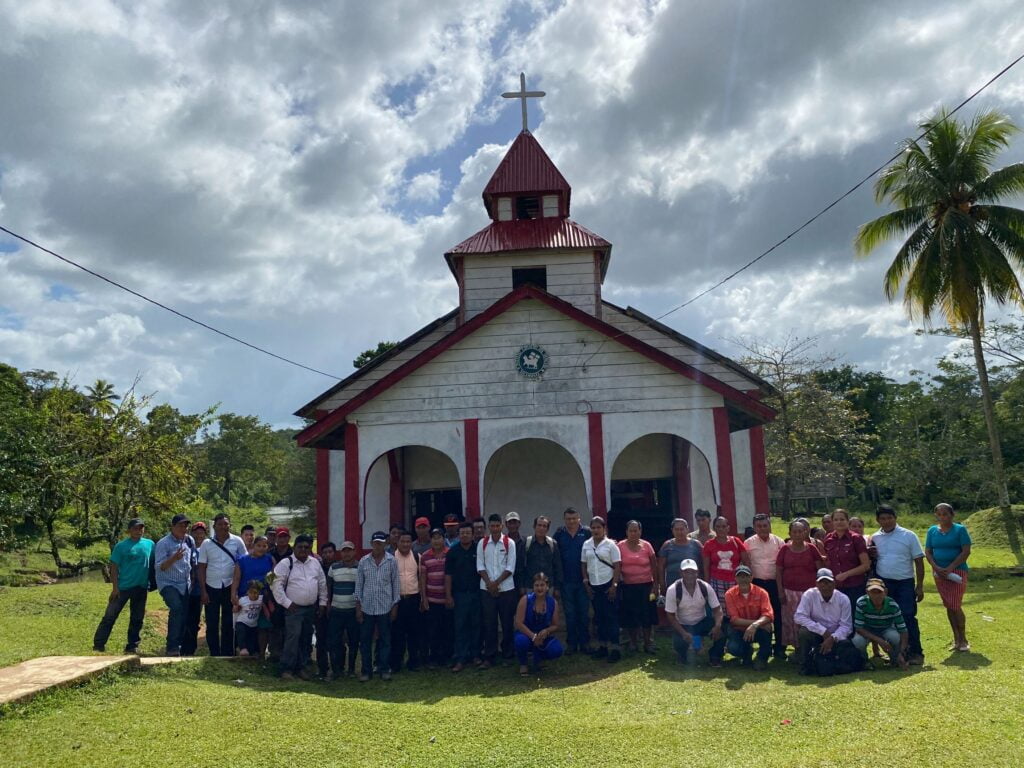
About MLR Forestal
In Spanish, MLR Forestal is often said to be “100% costeña” that is because the company operates in the Northern Caribbean Region of Nicaragua (RACCN), a region that together with RAACS is known by Nicaraguans as “la Costa” (the Coast). MLR is strongly committed to contributing to the development of the region, especially the neighboring communities.
It establishes agroforestry plantations that contribute to the environmental recovery of soils degraded by land use changes decades ago and contributes to the balance of the buffer zone of the Bosawas Biosphere Reserve.
Since its founding, the company has been aligned with national policies and the Development Plan of the Caribbean Coast and the Upper Wangky and Bocay Coast, contributing to the national effort to fight poverty by generating an average of 650 jobs per month, by transferring technology and knowledge to individual producers, cooperatives and indigenous communities on cocoa cultivation.
Likewise, the mere presence of plantations and the establishment of conservation areas contribute to the recovery of the forest vocation of the buffer zone of the Bosawas biosphere reserve and the promotion of biodiversity.
Share
